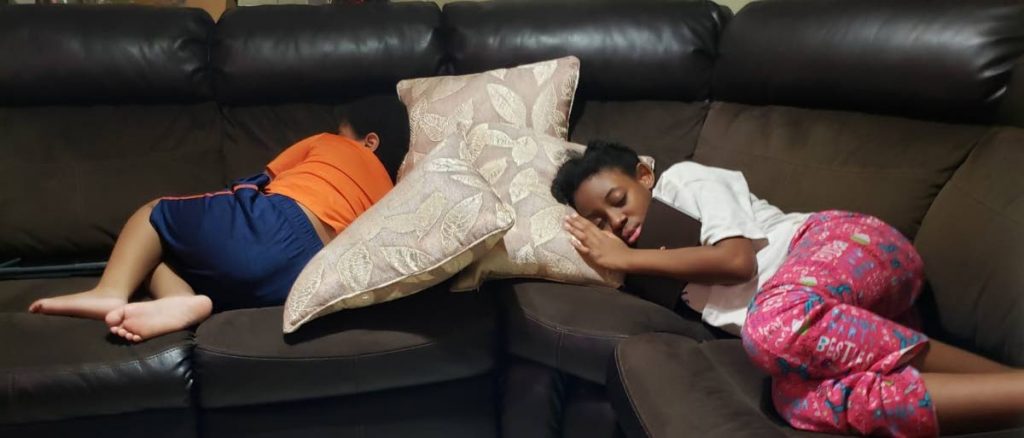Cyber Scholars: Zoom fatigue affecting students and teachers

IT’S never good to speak in absolute statements, but I haven’t spoken to a single teacher or student who hasn’t complained about feeling exhausted after online classes. There’s even an official name for this feeling: Zoom fatigue.
In many cases Zoom is the platform being used for classes. Even if you’re now using Zoom, the information gathered about the experience of Zoom classes will pertain to you. Educators and anthropologists have all weighed in on what makes them so tiring. In an article entitled Why We’re Exhausted by Zoom on Inside Higher Ed, Susan D Blum says the problem is “video conferencing is nearly a replication of face-to-face interaction but not quite.”
An anthropologist from the University of Notre Dame explains that we want to believe that Zoom classes are comparable to seeing students in a classroom, but they’re not. Teachers and students see part of a picture, not the whole picture, in Zoom classes, and they have to work harder to recognise and interpret social cues.

-
“Humans communicate even when they’re quiet. They take non-verbal cues,” says Blum. You can count the number of students fidgeting in a real class. It’s more difficult online.
“Even the cadence of language changes in Zoom classes,” says Blum. Online, there is always a delay in conversation while students adjust microphones. In “ordinary” conversation…there is often a brief overlap as one speaker ends…and another begins. And when it works well… it’s like a symphony,” she says.
There’s also the stress everyone feels when the video sticks or the internet goes down. Even when that doesn’t happen, it is a constant fear.
Educator Gianpiero Petriglieri, an associate professor at Insead, which explores sustainable learning and development in the workplace, says, “Most of our social roles happen in different places, but now the context has collapsed. We are confined in our own space, in the context of a very anxiety-provoking crisis, and our only space for interaction is a computer window.”
In many ways, students must feel that education has invaded the space once reserved for their personal social interaction. Now, school has invaded students’ personal space.
Working online might seem comparable to watching a television screen, but it certainly doesn’t qualify as entertainment. It’s hard work and demands much concentration.
National Geographic weighed in on the topic with an article entitled Zoom Fatigue is Taxing the Brain, by Julia Sklar. She says some teachers complain of feeling tired because they feel they have to emote more in their presentations to make up for not being present in person. Students feel tired because they have to concentrate more in the comfort of their homes.
The Harvard Business Review and educators suggest the following strategies to cope with online classes.
1. Don’t try to multitask on Zoom calls. Switching between tasks can cost as much as 40 per cent of your productive time because of the concentration involved.
2. Close chats and searches. Concentrate only on your class.
3. Put your phone away and stay present. Don’t check phone or e-mail messages.
4. Take short breaks. This is necessary for your eyes and your brain.
5. Look away from the screen sometimes while you are in class. Practise listening with your ears not your eyes.
Online classes work best if you minimise distractions, pay attention and try to be prompt with your responses.
What is most surprising to me is the lack of articles that address the guilt factor associated with online classes.
In many cases school days are too long with online classes. There is a tendency for administration to feel that unless students are in front of a computer most of the day, they are being short-changed.
But online classes can’t be compared to classes in school. Teachers and administrators must consider how tiring Zoom classes are for the eyes and the brain.
Talk to your teachers about the amount of time you feel comfortable being online. Be an advocate for your own optimal learning time and realise this is your time to develop self-discipline skills.
Reading books, off-line projects and writing exercises can take on a whole new meaning when they are given as breaks from online learning.
There are ways to get the best from online learning, and it all means being more aware of the challenges that it poses.
Debbie Jacob has a master’s degree in international education from Framingham State University in Massachusetts and a postgraduate library certificate from Indiana State University. She has been an English teacher and librarian for 26 years.


Comments
"Cyber Scholars: Zoom fatigue affecting students and teachers"